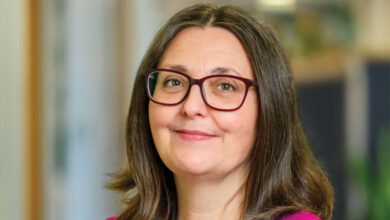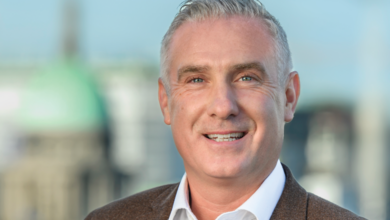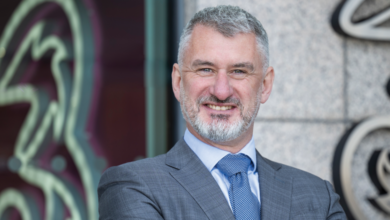Delivering services digitally
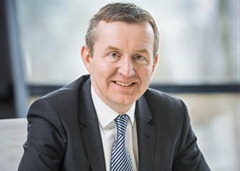 Abtran CEO Michael Fitzgerald discusses the changing nature of customer demand with Owen McQuade and the potential for both data as an enabler and digital technology to transform service to customers in service-led organisations.
Abtran CEO Michael Fitzgerald discusses the changing nature of customer demand with Owen McQuade and the potential for both data as an enabler and digital technology to transform service to customers in service-led organisations.
A changing population and the constant technological flux is leading to ever-increasing expectations from the public, across government and business services. For Michael Fitzgerald, however, the opportunities to transform service outweigh the challenges. Smart organisations can successfully adapt, grow and keep their customers on board by leveraging the latest advances in digital technologies and data analytics.
“Customers want to have convenience. They want to have it quickly, they want to have it easily,” he reflects, “and the way they engage with organisations is increasingly across online and digital.”
The Abtran brand places the client’s customers “at the centre of everything we do”. When making decisions everyone in the organisation is looking for answers to two principal questions: “How do we make it easy for the customer to access this service? How do we share know-how across our clients?”
As the company works in highly regulated markets, it has to ensure compliance while also making it easier for the customer to “cut through all that complexity”. He notes: “In many cases, when you’re working across government, if you want to implement change and you want to look at new and innovative ways of delivering services, compliance and data protection is often mentioned as the blocker.” Today’s customer simply wants to access a service in a far easier way. Abtran aims to meet that challenge in an open and compliant manner whilst respecting data privacy.
Ireland, in his view, has made significant strides in transforming public services. Abtran’s involvement has included the centralisation of the student grants process and the roll-out of the State’s new driving licence – which is now interoperable across the European Union.
“In each of those cases,” Fitzgerald comments, “we’re looking at centralising services and we’re looking at making the service and the access easier for the customer. We’re looking at reducing cost for the tax-payer and, as for the future, looking at how to deliver a more compliant, easier and effective service.”
Data insights
Data opens up a “huge opportunity” whether in data analytics or in the sharing of data across government. More and more, he finds the leveraging of data-related opportunities becoming key in the transformation of public services.
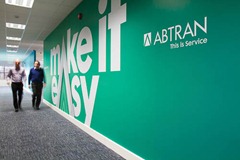 The Public Service ICT Strategy document, from January 2015, recognises “data as a critical enabler and sharing this data on a whole of government basis is critical to supporting better decision-making, increasing simplicity of engagement, driving efficiency and delivering a range of new digital government services to citizens and businesses”.
The Public Service ICT Strategy document, from January 2015, recognises “data as a critical enabler and sharing this data on a whole of government basis is critical to supporting better decision-making, increasing simplicity of engagement, driving efficiency and delivering a range of new digital government services to citizens and businesses”.
There is evidence already of data sharing as an enabler, in particular between the Revenue Commissioners and the Department of Social Protection, to reduce fraud, resulting in substantial savings for the tax-payer.
There are many examples across developed economies where data analytics and sharing can make a substantial difference. From a health perspective, across developed economies, it is estimated that around 5 per cent of the population consumes over 50 per cent of expenditure: “If we identify that 5 per cent, we will have a huge opportunity to proactively improve lives and optimise decisions around health budgets.”
Sharing
Change in service models is imperative to optimise service and resource utilisation. Fitzgerald envisages a more collaborative approach across the public and private sectors that makes the most of the infrastructure and talent, process expertise and technologies “so that it isn’t just one approach but it’s the combination that’s best.”
This talent, know-how and resources exists across the public and private sectors – and we need to be smart in optimising these resources to transform services. The conversation turns to the concept of “customer at the centre” and “citizen first” – perhaps a misnomer as the customer has always been at the centre in one way or another. “As a service organisation, the customer is always at the centre of how you do things and how you deliver services,” he responds. Service, for Abtran, is a combination of “great talent and the most appropriate technologies and streamlined processes.”
Fitzgerald continues by highlighting the significant strides made in transforming public services: “Where there has been success in delivering services, we should learn from that and use it again and again.”
“The Revenue Commissioners are a great example of the delivery of world class services,” he comments. “There are more examples, from within the public sector, where we can replicate that success across multiple government services.”
A mixture of public and private sector clients gives Abtran an ability to learn from both sectors and “share the intellectual property that we’re acquiring across non-competing sectors.” Government and business organisations are both interested in the service opportunity presented by the proliferation of smart devices within the home.
“There are examples of service excellence in the private sector that we can learn from and replicate.”
Fitzgerald explains: “We work with Aviva Health and they’ve launched their new Digital Doctor service which, I think, is of great value to a person wishing to take up health insurance but I think there is also a value to the public sector as well.”
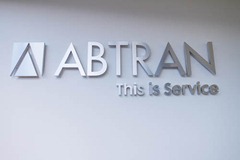 “The organisations that will succeed,” he adds, “are the ones which embrace digital technologies and make the most of data insights to have a greater connection with the home and the household.”
“The organisations that will succeed,” he adds, “are the ones which embrace digital technologies and make the most of data insights to have a greater connection with the home and the household.”
Abtran
Established in 1997 with six staff, Abtran now has 2,000 employees and is focused on business process management. Sample clients include the Revenue Commissioners, the Road Safety Authority, the National Transport Authority, Aviva, Sky and Electric Ireland.
“Our focus is on delivering customer management services which run from front-of-office voice and digital support services right through to back office services for identity and validation,” Fitzgerald points out. “Being able to provide an end-to-end, voice to non-voice package allows us to deliver a better customer service and own that full customer journey so that we can deliver a seamless service.” The company operates from multiple sites in Cork, including a 65,000 square foot facility opened last year. Its Dublin office is located at Custom House Plaza and the business is in a “very strong expansionary phase.”
Profile: Michael Fitzgerald
Originally from Kerry, Michael trained as a chartered accountant, having qualified from University College Cork. He then participated in the Stanford leadership programme, supported by Enterprise Ireland – which he says has been very supportive of the organisation’s growth. Married with two children – Mikey (8) and Anna (9) – his main interest outside work is sport, especially running and keeping active.


